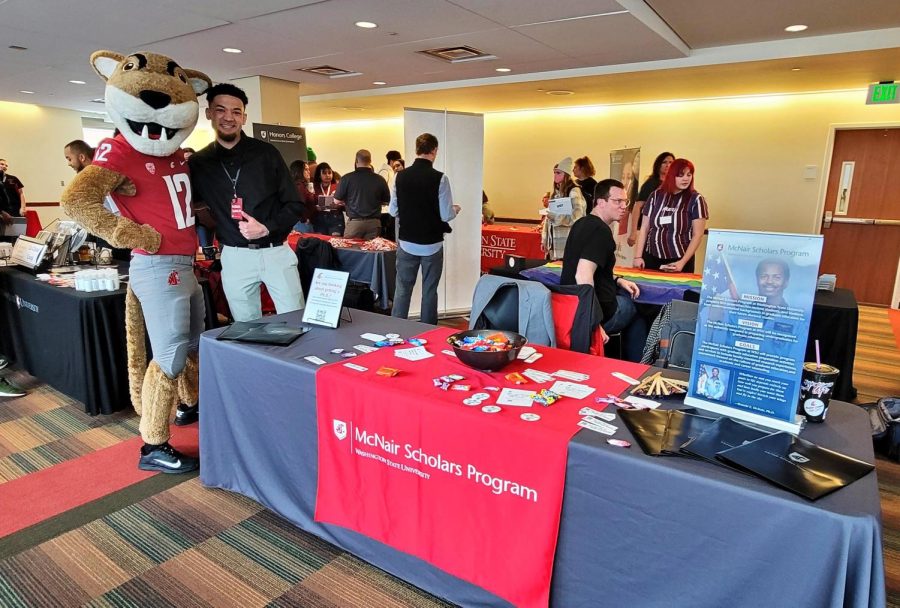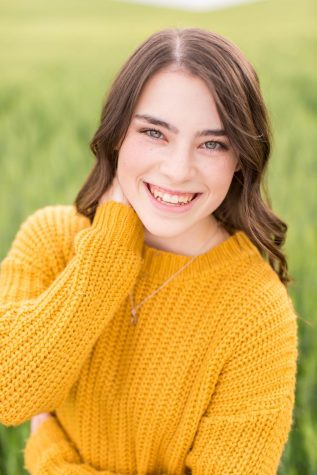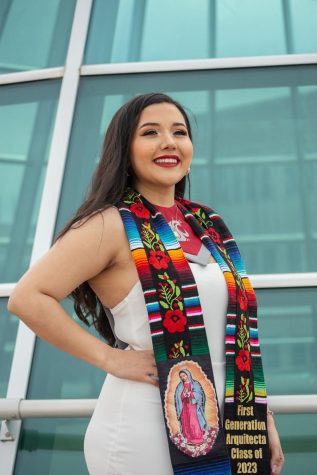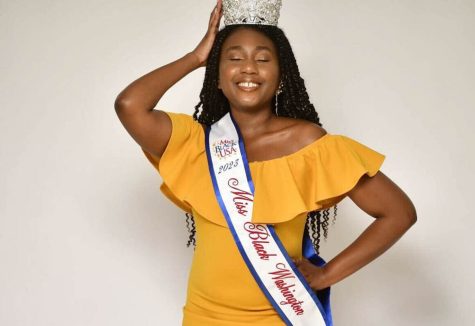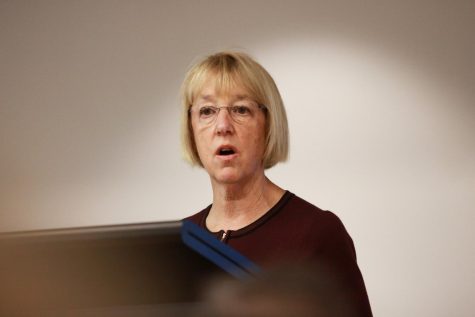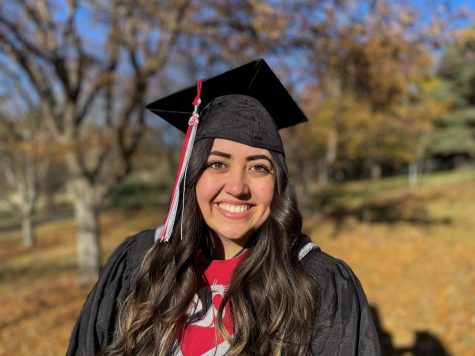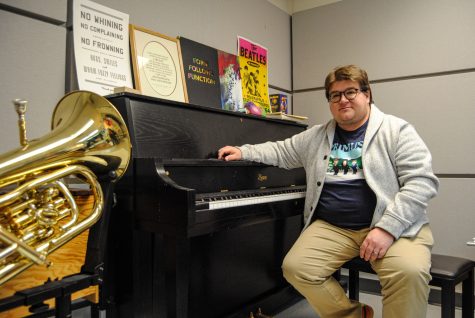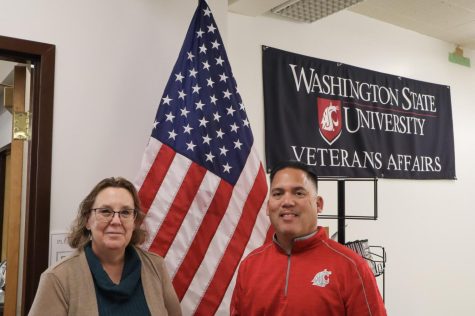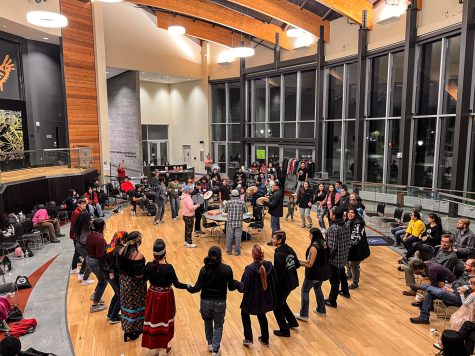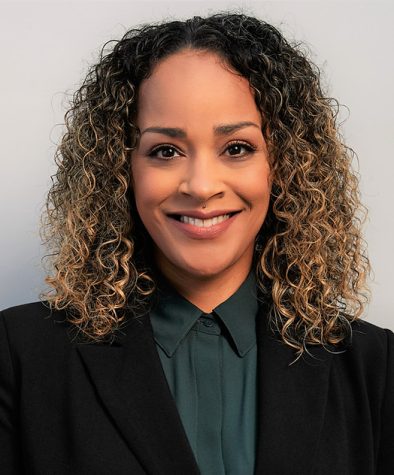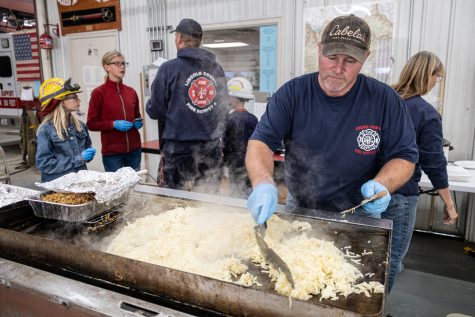Family, faculty reflect on Deandre Hunter’s ‘big heart,’ passion for research
Deandre Hunter’s death confirmed accidental Friday night
Deandre Hunter poses with Butch as he runs a tabling event for the Ronald E. McNair Post-Baccalaureate Scholars Program in March.
May 8, 2022
This spring, Deandre Hunter was promoted to McNair Scholar at WSU – and said it was truly the happiest moment of his life.
Throughout his college experience, Hunter, junior psychology and human development double major, advocated for mental health in underrepresented communities, worked toward his dreams of earning a doctorate degree and became a role model for his family.
Nicole O’Haver, Hunter’s mother, said he had the biggest heart of anyone she ever met. He was willing to do anything for his siblings and nephews, who thought he was “the bee’s knees,” she said.
“He found his purpose at WSU. He grew as a young man,” she said. “He overcame so many obstacles while he was here at school. His experience here transformed him into who he was the day he died, and he was somebody that I was so proud of and somebody that his siblings could look up to. I think coming here had a lot to do with that for sure, in his experiences with McNair and with [his] fraternity. Being a part of the campus community really gave him a purpose.”
At 6:40 p.m. on Friday, Pullman Police Department detectives and the Whitman County Coroner’s Office confirmed that 25-year-old Hunter’s death was accidental. Earlier that morning, he sustained a gunshot wound to his abdomen in the parking lot of Pimlico Apartments.
This year, Hunter brought hope and humor to his cohort in the Ronald E. McNair Post-Baccalaureate Scholars Program, said Raymond Herrera, program director and associate dean of graduate school.
From the moment he met Hunter during a Zoom interview for the program, Herrera said he was impressed. Hunter was in his car, trying to get away from his “loud” roommates and give the interview all of his focus. Hunter described his situation jokingly, but Herrera said it was an example of his attentive approach to research and academics.
Manee Moua, associate director of the McNair Scholars Program, said Hunter wanted to endure the rigorous program to eventually provide mentorship for youth, specifically young Black men.
Moua would often find Hunter in the program’s “den,” at any time of the day, studying and asking her questions, she said.
During her seminar class, Moua brought in a senior student to give a presentation for first-year McNair Scholars as an example and recalled Hunter’s interest and excitement in the project. He asked critical questions and was inspired to continue conducting his own research, she said.
“I think every moment, to him, was a learning moment,” Moua said. “[He was] always just hungry to learn and to absorb all these things that are going to help his future. I don’t know how else to put it in words. He was just always ready. Just ready to learn and always receptive to any feedback I would give him.”
In March, Moua said Hunter was willing to talk with future Cougs at a tabling event for the program when no one else volunteered – braving crowds of families at 8 a.m. to talk about his WSU experience. The students gravitated toward him and his sense of pride and belonging with the program, she said.
Whether it was chatting with students, becoming a chaplain for the Phi Delta Theta fraternity or attending his sister’s 16th birthday party last week, O’Haver said Hunter’s presence among people is the quality she misses most about him.
“The energy just shifts when he walks into a room. It’s something that was so powerful about him when he walked in – like the party started,” she said.
Although he struggled with bipolar disorder since he was 7 years old, he wanted to use his experiences to help others through their mental health journies, O’Haver said.
Moua said Hunter looked forward to becoming a senior scholar in the program. He planned to attend the program’s summer institute this year to present at his first conference and explore future doctorate programs.
Every time they spoke, Moua said Hunter’s excitement was contagious. He constantly checked with Moua about whether or not he was “doing OK,” and Moua always reminded him that he was thriving and “doing awesome.”
O’Haver said Hunter’s passion and drive to succeed began in kindergarten through his love of basketball. He would spend hours shooting hoops, and she had to drag him inside. Hunter even played Amateur Athletic Union basketball at a junior college.
Herrera said Hunter always tried to become better in different facets of his life and embraced challenges like the McNair Scholars Program.
“We’re definitely gonna miss him,” he said. “He was such a bright and rising star. There’s just not a lot of words that can really express what he meant to us.”
Hunter’s family is scheduling a service next week for his family, friends and professors to gather at Corbeill Funeral Homes in Pullman.


